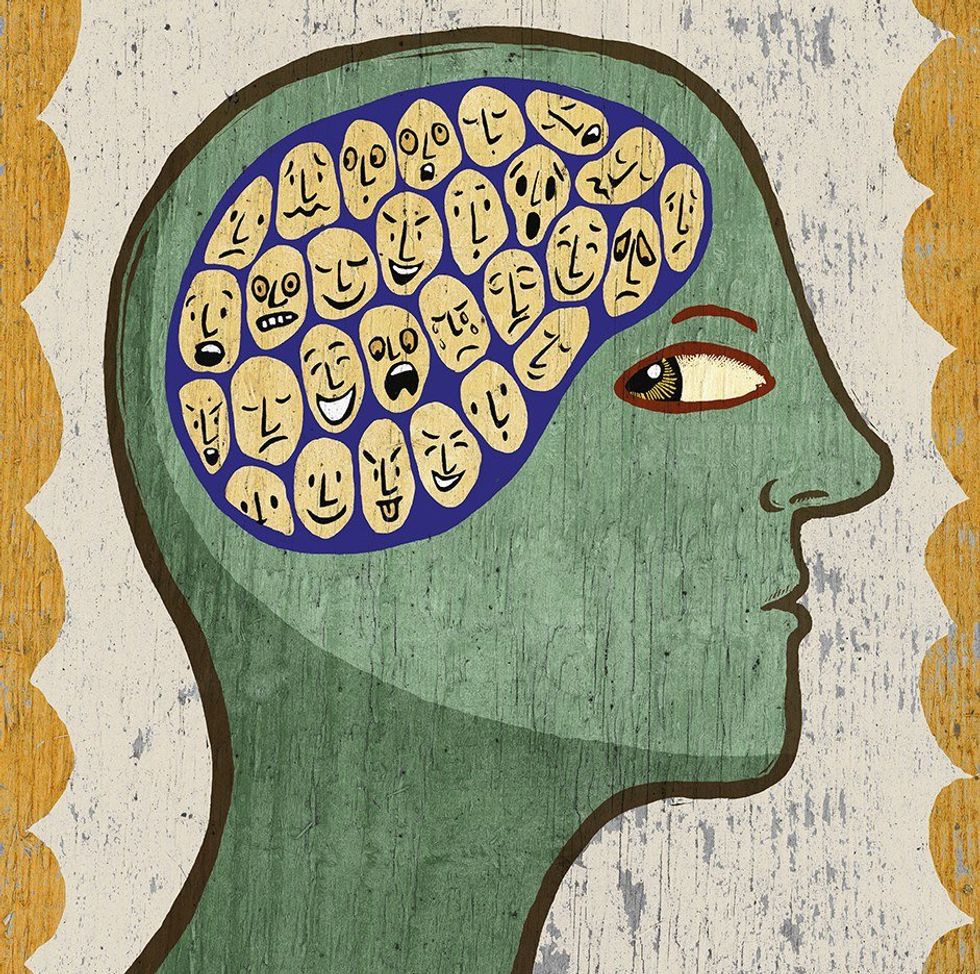Imagine living in a world that you can't trust. Most people live that way anyways. It's common for people to not trust their government or the officials or the environment around them. However, imagine that anger and fear on a constant basis?
Schizophrenia has been labled the "most disabling mental illness" and many agree to that statement. It is also the most misunderstood. The word "schizophrenia" literally means "split mind" and that's precisely what the illness is. Schizophrenia is a chronic and severe disorder that affects how a person thinks and feels about the world around them. They begin to lose a sense of what is real and what is inside their head. People with schizophrenia are "split" from reality, not a split in personalities.
This disorder typically begins in early adulthood (between the ages of 15 and 25). In past studies, men tend to develop symptoms of this disease quicker than females. In females, it can often take years to diagnose schizophrenia. Schizophrenia is not a very common disorder. In the United States, approximately 2.2 million people (or 1% of the population) have it. Schizophrenia is genetic though, so the normal 1 in 100 odds of developing the disease jump up to 1 in 10 if you have a parent or relative with the disorder.
For some people, the disorder can come gradually. They may experience a few brief episodes that worsen as time goes on. For others, the disorder comes very suddenly. Sudden schizophrenic episodes can be triggered from extreme stress or a traumatic event, but no event can actually cause the disorder.
Psychotic symptoms fall under three categories: positive symptoms, negative symptoms, and disorganized symptoms.
Positive symptoms are not positive in the good way. They are the symptoms that add something to the experience of the patient. For example, positive symptoms of schizophrenia are:
- hallucinations or delusions
- innapropriate laughter/tears
- racing thoughts
- movement disorders (ticks or agitated body movements)
- thought disorders (unusual or dysfunctional ways of thinking)
Negative symptoms are symptoms that subtract from normal behavior. For example:
- neglect of personal hygiene
- lack of emotions
- toneless voice
- withdrawal from family and friends
- low motivation
- social isolation/low social skills
- low energy
- difficulty preforming daily tasks and sustaining activities
- reduced feelings of happiness
- catatonic episodes (when the person is almost completely unresponsive; they have little ability to move or react to things around them)
Disorganized symptoms are jumbled thoughts and speech and problems with organization and attention.
Many schizophrenics often have cognitive symptoms as well. For example, a person might have:
- poor memory
- difficulty expressing thoughts/feelings
- slow thinking
- poor concentration
- difficulty understanding otherwise basic things
The most common symptom of schizophrenia is hearing voices. It is as if you couldn't sort out whether the voices in your mind were internal or external.
Postmortem studies have shown that schizophrenics have extra dopamine receptors in their brains, thus increasing brain activity and creating positive symptoms. People experiencing schizophrenia have abnormalities in many parts of their brain.
We have not yet found a complete cure for schizophrenia, but we have developed forms of therapy and medications to significantly decrease the symptoms' severity. For example:
- antipsychotic medications
- psychosocial treatment
- coordinated specialty care
- electrotherapy
- physical and psychological therapy
Schizophrenics are often feared in our society. Doctors, therapists, and even friends and family members turn them over in fear. Caring for and supporting a loved one with schizophrenia can be very taxing and difficult. It is hard to respond to someone who makes strange or clearly untrue statements about what they see. People with schizophrenia have been avoided, shunned, abused, jailed, or locked up. When people hear about the disorder, it is common to think of someone dangerous and vicious such as a serial killer. HOWEVER those people are in the SMALL MINORITY!
People who have overcome this disorder have not only learned to live with the world in their minds, but have made amazing contributions to society:
- John Nash - a mathematician and Nobel Prize winner
- Syd Barrett - the founder of the rock band Pink Floyd
- Vincent van Gogh - one of the world's most adored painters
Not all people with schizophrenia are scary, bad people. In fact, they can sometimes be calm and sweet and funny and understanding. Do not judge a book by its cover. Do not judge a person based on their disabilities.





















